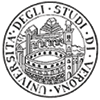Presentation
The 8th Graduate Profile Report comes at a particularly interesting time for Italian universities. Of the 180,000 graduates from the class of 2005 investigated by AlmaLaurea, more than 81 thousand are first level graduates who completed the three-year degree introduced by the university reform, while the rest hold degrees based on the old university system. The profiles of these post-reform, first level graduates, make it possible to conduct significant checks on the state of progress of the university reform.
Thanks to the membership of a growing number of universities, the AlmaLaurea investigation contains a wealth of reliable and timely documentation. This is particularly useful to the Ministry for Education, Higher Education and Research (MUIR), to the National Committee for the Assessment of the University System (CNVSU), to university governing bodies and assessment committees, as well as to school principals and staff engaged in the delicate task of guidance into higher education. The assessments resulting from the agreement between MIUR(CNVSU) and ALMALAUREA are a valuable source of additional ideas for the analysis.
Aspects analysed
Based on the study of approximately one hundred different variables, the Report has produced up-to-date profiles for the 180,000 ALMALAUREA graduates who completed their degrees between 1st January and 31st December 2005. The 2006 edition of the Profile follows the structure adopted in previous years and is broken down into university, discipline, faculty, degree course/category, gender and type of graduate (worker-student, student-worker, student). In order to gain a better understanding of the state of progress of the reform, the analysis makes a further distinction between pure graduates (i.e. those who enrolled directly on a degree course offered by the reformed university) and hybrid graduates (i.e. former pre-reform students who subsequently transferred to a post-reform degree course).
Among the graduate characteristics investigated in the Report, the following are of particular interest:
- age at graduation and enrolment
- examination and graduation grades
- regularity of completion times and duration of academic study
- parents’ qualifications
- social class of the family
- type and grade of high school certificate
- regularity of class attendance
- study abroad periods
- training periods or in-house company training experiences
- time taken to complete thesis/final examination
- assessment of university experience
- sustainability of academic workload
- foreign language skills
- IT skills
- intention to pursue postgraduate study
- preferred employment sector
- characteristics of job aspired to.
For the first time, the survey also explores the following:
- student services provided by cities, universities and companies in connection with the right to education
- the job-seeking strategies that graduates intend to adopt.
The Ministry for Education, Higher Education and Research - Department of Education -, through its communication of 3rd May 2006 to the Managers of regional education offices and to school administration services and school principals, has given exemption from school service duties for the purpose of attending the AlmaLaurea Conference.
Programme
morning session 9.30 a.m.
Introduction: Alessandro MAZZUCCO (Rector Magnificus, University of Verona)
Welcome Speech by the Authorities
Chair: Fabio ROVERSI MONACO (President of the ALMALAUREA Interuniversity Consortium)
Presentation of the 8th ALMALAUREA Graduate Profile Report
Andrea CAMMELLI (Director of the ALMALAUREA Interuniversity Consortium)
Roundtable discussion: THE STATE OF PROGRESS OF THE REFORM
Moderator: Michele MIRABELLA
Speakers:
Guido MARTINOTTI (University of Milan, Bicocca)
Antonello MASIA(Director General for University Education)
Giliberto CAPANO (University of Bologna, Forlì Campus)
Enrico PREDAZZI (University of Turin)
Claudio GENTILI (Director, Education, Confindustria)
Andrea ANGELINI (Vice Pres. CNSU National Board of University Students)
CRUI (Rectors’ Conference of Italian Universities)
CNVSU (National Committee for the Assessment of the University System)
CUN (National Board of Universities)
Afternoon session, 2:30 p.m.
Chair: Donata GOTTARDI (Pro-rector, University of Verona)
Speakers:
Age at graduation, level of satisfaction for degree course taken and study/employment prospects before and after the reform
Dino RIZZI (University of Venice, Cà Foscari) and Emanuela STEFANI (Director Crui)
External training: training periods/in-house company training and study abroad experiences
Alessandro LAI (University of Verona) e Giulio FEZZI (Cattolica Insurance)
Student Services: universities, cities, and the right to education
Olimpia MARCELLINI (Director General, Students and the Right to Education - MIUR)
and Pietro BRANDMAYR (President, National Association of Institutions for the Right to University Education)
Science Degrees and Humanities Degrees
Franco BIASUTTI (University of Padova) and Nicola VITTORIO (University of Rome, Tor Vergata)
Job-seeking methods
Antonio CHIESI (State University of Milan) and Raffaele PACI (University of Cagliari)
Pre- and Post-Reform graduates: the view of personnel managers
Giovanni FACCO (Vice-President, Inter-sectoral Group of Personnel Managers)
Giorgio NANNETTI (Personnel and Systems Manager, Ansaldo Energia)
Graduate expectations and professional realization
Francesco CAMPOBASSO (University of Bari), Corrado CROCETTA (University of Foggia) and Massimo BILANCIA (University of Bari)





